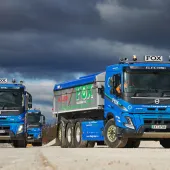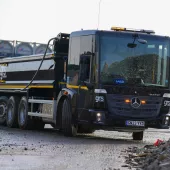FTA publishes annual survey findings

Driver shortages and CPC remain the biggest challenges for transport managers, says Association
DRIVER shortages and Driver CPC are the most challenging issues faced by transport managers, according to a survey carried out for the Freight Transport Association (FTA). A poll of 265 O licence-nominated transport managers, carried out in July this year, highlighted the impact these issues are having across the industry.
Published in the third annual Transport Manager Survey, it provides a comprehensive overview of transport managers’ assessment of the state of the industry and the role that they play in UK logistics. The results highlight the ongoing issues of driver shortages, an ageing workforce, barriers to recruiting young people into the sector, inadequate roadside facilities and congested roads.
In particular, the FTA says driver recruitment and retention has continued to be a major issue for transport managers this year. In the survey, over 46% reported that in recent months they were either unable to fill HGV driver vacancies or had experienced long delays in doing so.
As a result, a majority of transport managers anticipated a shortage of drivers in the near future, with most blaming retirement as the greatest contributing factor. This is consistent with the number expected to retire in the next five years.
Other survey findings include:
- Average number of HGVs per transport manager was 43
- Greater London was overwhelmingly nominated the worst part of the UK for the provision of roadside facilities
- Transport managers experienced 52% deterioration in journey time reliability on urban city routes; 41% worsening on motorways; and 37% decline on trunk roads.
The Transport Manager Survey will be available to delegates attending the FTA’s Transport Manager conference series.







